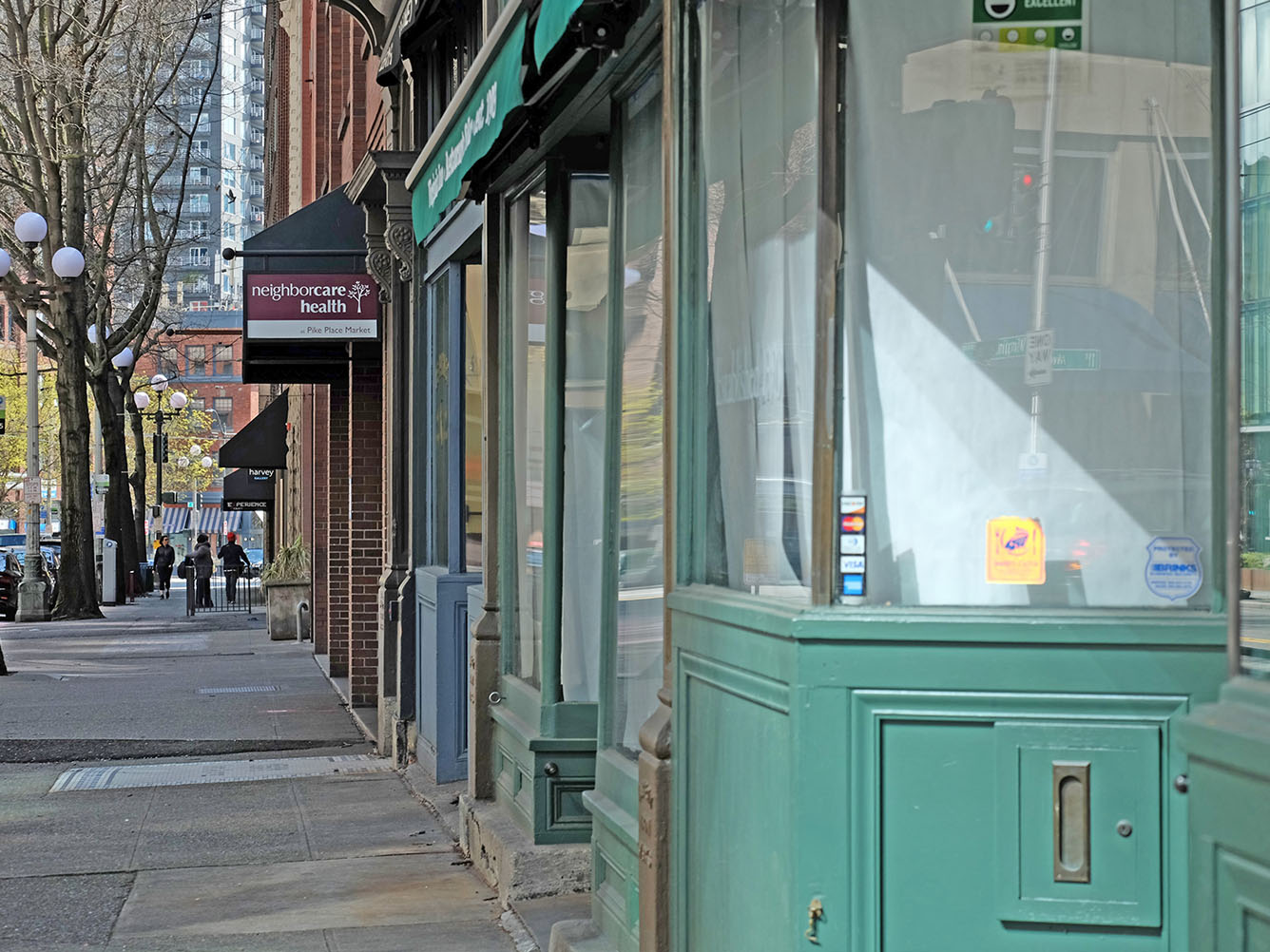In early February, I had the privilege of addressing 1,300 business, nonprofit and civic leaders at the Downtown Seattle Association State of Downtown event. I spoke to the incredible success we’ve seen over the past decade in our center city and our recovery since the Great Recession. We’ve experienced record job growth, a growing residential population, and transformative investment in civic and public spaces, all of which have made downtown Seattle one of the great downtowns in North America.
In the last two weeks, it’s been heartbreaking to see the immediate and acute public health and economic impacts of the global coronavirus pandemic on our city. Downtown — as the region’s economic engine — has been particularly hard hit. The fuel supply of workers, meetings, conventions and visitors has been effectively shut off.
The state of downtown today is one of eerily quiet sidewalks and parks, shuttered restaurants and retail establishments and empty hotels and theaters. It’s been painful to see small business owners, arts organizations and nonprofits make difficult decisions to reduce hours, eliminate staff, close temporarily or go out of business altogether. And while the economic impact on small businesses has been particularly harsh, no sector is immune from this, including the airline and cruise industries, which support our strong tourism sector. My heart goes out to the owners, managers and staff of every business and organization feeling this pain.
I’m grateful for the leadership, quick response and hard work of health-care workers, local and state officials, and elected representatives who are working around the clock on both the public-health and economic impacts of this crisis. Likewise, the private/nonprofit sector — including Amazon, the Seattle Foundation and All In Seattle — has stepped up in unprecedented ways, collecting and contributing millions of dollars in just weeks. Seattle’s public/private collaboration is firing on all cylinders at a time when it’s most needed.
Yet as responsive as our local leaders and the private sector have been, this crisis will not be solved at the local or state level. The scale and depth are too great. The magnitude of this situation demands serious, urgent and creative action by the federal government. The standard economic-relief tools of the past are not up to the task of mitigating the current economic catastrophe. In an era where we can buy anything online for delivery in hours or transfer money to other people’s bank accounts with a tap on an app, we should be able to get essential relief funds into the hands of small business owners, nonprofits and workers immediately. We need only to look to the private sector — including leaders within our community — for ingenuity and inspiration.
The federal government must continue to move creatively and boldly to invest in small business and nonprofit organizations that are closing their doors and provide relief to the growing number of workers out of jobs. This is particularly important for our downtowns, which will lead the economic recovery once the virus has receded.
The federal action on a major investment package should be viewed as a necessary, early phase intervention that is part of a long-term rebuilding and recovery strategy. By some estimates, 30% of the U.S. workforce could be out of a job by next quarter. Sustained unemployment levels of this magnitude will result in another public-health crisis in our country, particularly in high-cost cities like Seattle, with more people lacking health care and homes. This scenario will overwhelm our community safety net and human services, just as cases of the virus threaten to overrun hospitals. To prevent this secondary crisis and rebuild our economy, the federal government must approach the recovery effort as a sprint and a marathon — move quickly and keep moving to rehabilitate the economy.
While things are likely to get worse before they get better, I believe we will get through this unprecedented time and emerge as a stronger downtown and a stronger city. Seattle has time and again proven its ability to bounce back, innovate and adapt. There’s a spirit, grit and determination that has defined this area for more than 100 years. I have hope that on the other side of this we’re closer as a community, have a greater appreciation for how fragile our economic prosperity is and feel even more fortunate to call Seattle home.
